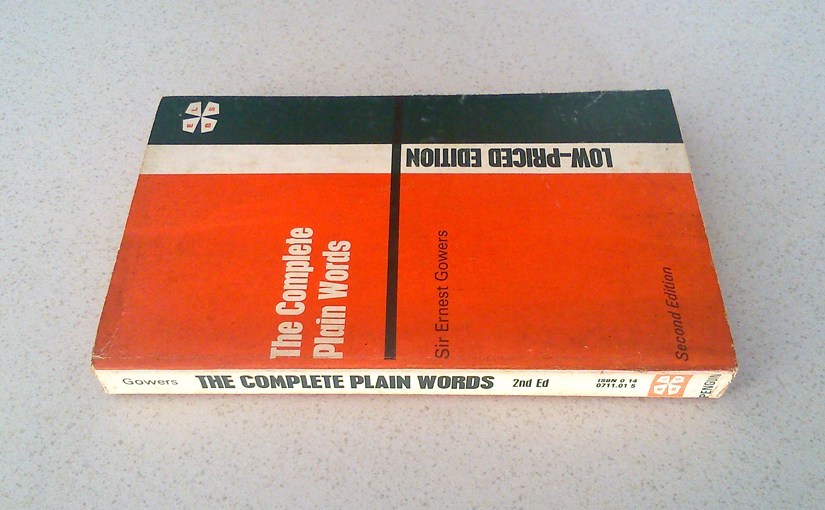A simple manifesto
Sir Ernest Gowers wrote Plain Words, a guide for the British Civil Service on how to write to members of the public. That is, he was telling bureaucrats how to “explain the law to the millions.” He gave three elementary rules:
- Be short.
- Be simple.
- Be human.
Later in the book, he added a fourth:
- Be correct.

I’ve never seen better guidewords for anyone whose job is to help ordinary people with law and the government. That’s not just those who work for a government agency, but also attorneys.
Sadly, both government workers and attorneys are often bad at following Gowers’s advice. We take 50 words to say what could be said in 10. We use legal jargon when plain English would work better. We write and speak like robots or Vulcans. We make ourselves difficult to understand.
I think we should change that. Short, simple, human, correct—when I do a will, trust, or Medicaid application, that’s what I want my client’s experience to be. In elder law, things often do become long and complicated. But I think my role as an attorney is to take a complicated legal task and make it as simple for my client as I can.
Here’s an example. Most estate planning done by lawyers takes one or two months and several in-person meetings to complete. These meetings can pack a lot into just one or two hours. A client might be asked to make many decisions in quick succession. It’s easy to succumb to decision fatigue.
Can’t we find a better way? A way to have fewer and maybe shorter meetings? A way to educate clients and give them time to make good decisions? A way to make the estate planning process less of a hassle?
I haven’t figured it out yet. But I want to. I have some ideas that are worth trying. Because whatever the status quo is, it’s not short, simple, or human. And it’s not working—most Americans have little or no estate planning in place.
Talking about simple, that’s one thing Medicaid is not. It’s a huge and complicated government program, which many people depend on for long-term care. I can’t make Medicaid simple. I can’t change the rules or get my clients through some loophole that magically solves everything. But I can make it simpler. I can make it less complicated for my clients.
I wish the world operated on Gowers’s rules. I wish wills, trusts, and Medicaid applications were all short, simple, human, and correct—they are often none of those things. I think my job—and the job of everyone who works in estate planning or elder law—is to bring as much brevity, simplicity, humanity, and accuracy as I can to my work.
